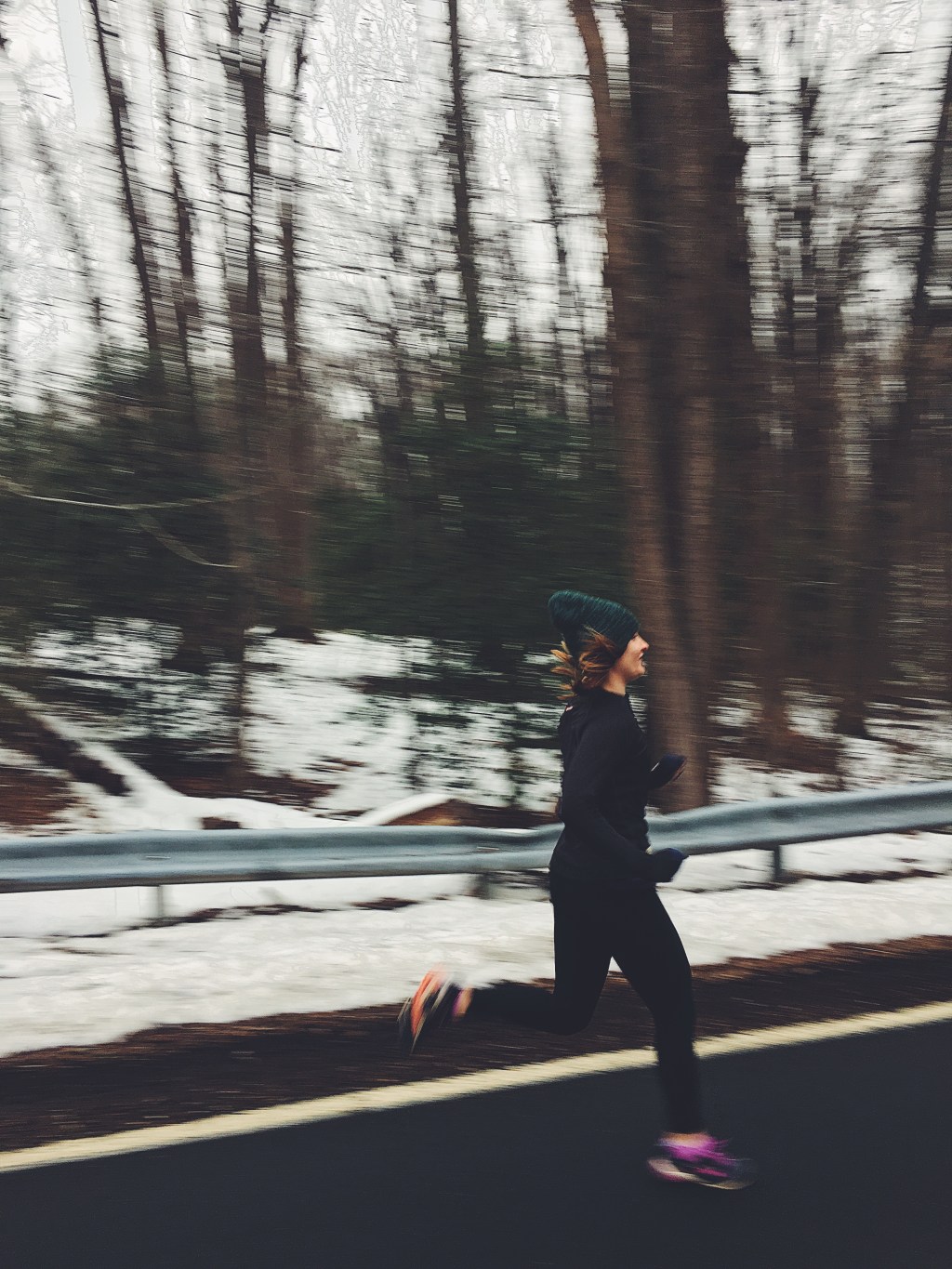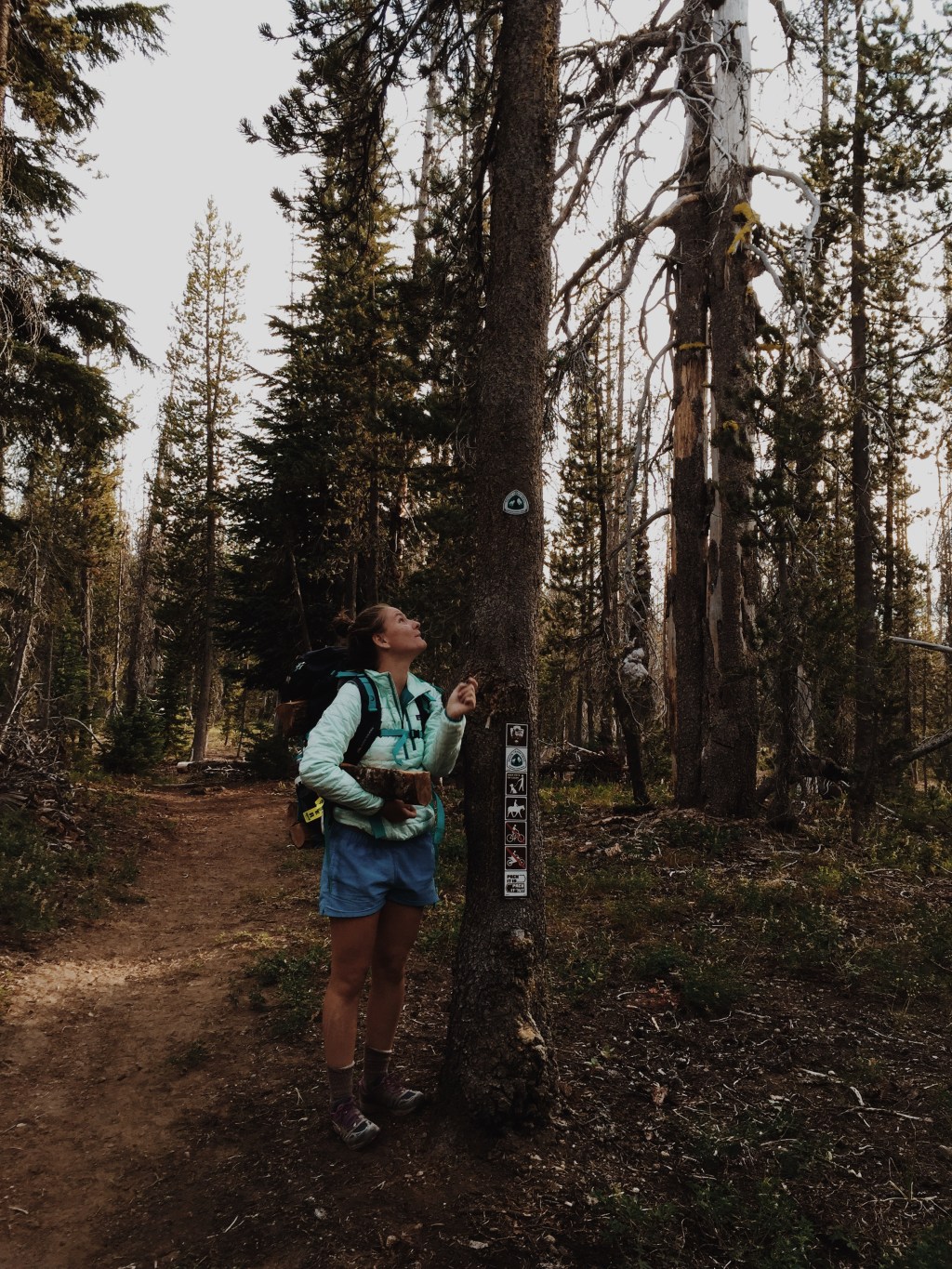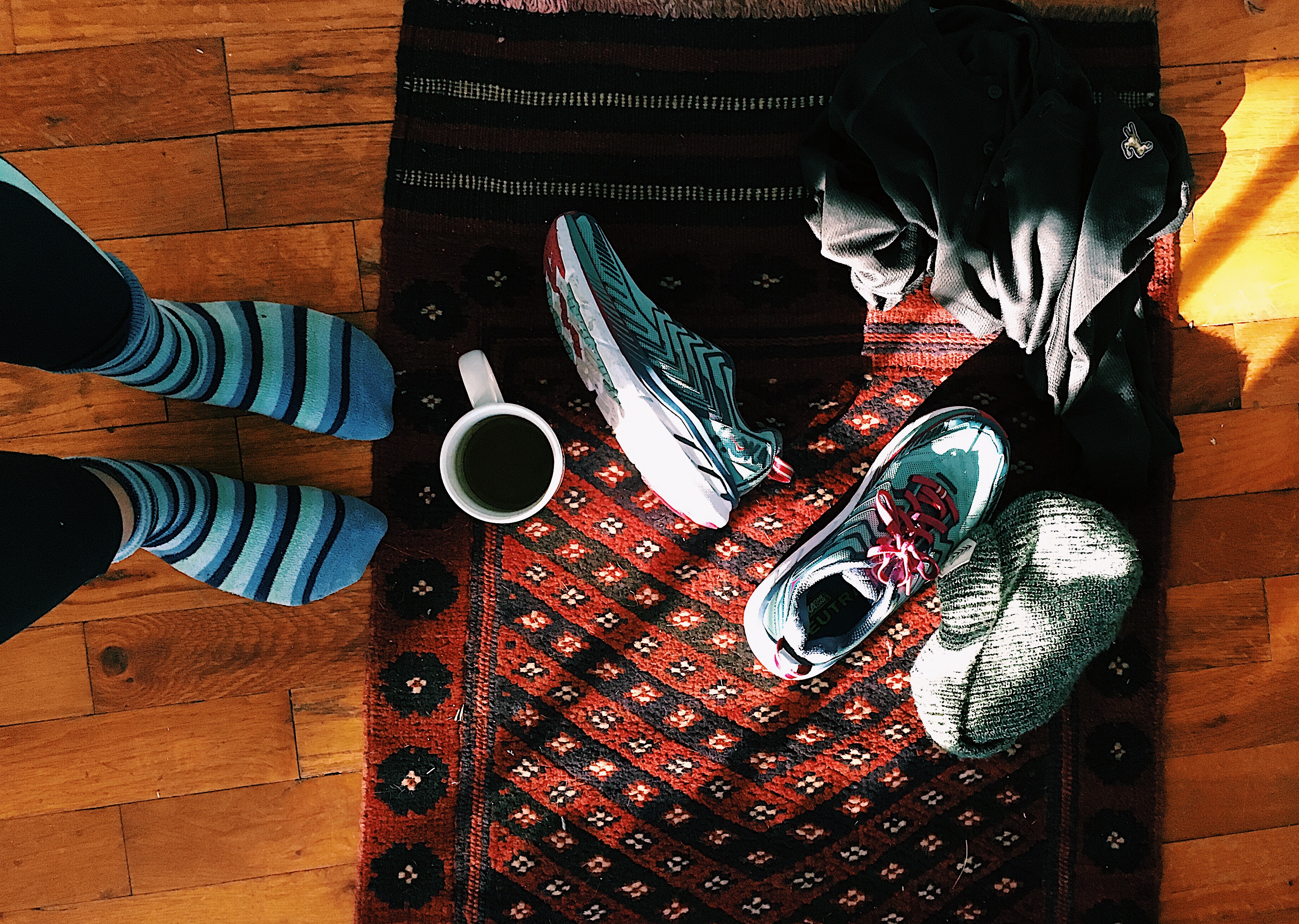Editor’s note on Aug. 25, 2020: Since this article was first published, Sydney Zester, 26, has released a second book of poems, “Rituals,” which focuses on the intersection of gender norms and the culture of violence as it relates to female athletes.
Her poem “8 Words Say It All” sums up the summer that changed Sydney Zester’s life. The entire piece reads: “The 4,000-mile run that carried me home.” While in college in 2014, Zester heard about a nonprofit in her hometown of Baltimore, Maryland, called 4K for Cancer, which organizes cross-country runs and bike rides to raise money to support young adults with cancer. Zester said she was blown away by the group’s mission and felt like doing something bigger than herself, so she signed up.
The summer between her sophomore and junior year, she ran from San Francisco to Baltimore with a group of people she’d never met before. It was the first time she really stepped out and took on a big adventure like that.

Sydney Zester writes about the motivation it takes to get up and run in her new book of poetry. (Photo Courtesy of Sydney Zester)
“It was very big for me,” Zester said. “It was a confusing time in my life, and here I was surrounded by all these incredible people who had these dreams and goals. I came back a different person. I saw how tiny I had been making my world, and I was no longer interested in doing that. It was really a shift in self worth.” Before the run, Zester had been struggling with who she was and what she wanted to do. She was in a long-distance relationship that felt all-consuming, she was unsure of her future and she’d struggled with anxiety in the past.
Although she’d always considered herself a writer—she journaled regularly and once penned a book of poetry as a Christmas gift for her family when she was a kid—seeing new places and meeting interesting people on that run fueled a renewed sense of creativity. During the trek, which took the entire summer, she wrote in her journal each night, while staying with various hosts. Much of what she scribbled down was short, lyrical poems and whimsical thoughts she dreamed up as she ran.
She added to those ramblings in the five years that followed—through a master’s degree in public health, marrying that long-distance boyfriend, a move to Chapel Hill, North Carolina, and several ultramarathons. Eventually, she had enough running-inspired poems to put them all together in a book. The result? Run Wild and Be, which was published in March 2019.
In it, she writes in quirky, relatable language about the motivation it takes to run. Take, for example, her poem, “Slow Start.” It reads: “Mile 1 / clunky quads / crusty eyes / cold fingers / coffee / Mile 9 / thinking about / eggs and toast / but wish I had / time for one / more mile.” She also admits to loving alliteration. “One dusty road / down the desert / with a bull in a cage / hidden in the canyon,” reads another piece.
She writes about running despite winter weather: “Wiggle on your wool socks / and pull on your puffy / then quietly just start and go / because we all know / later can quickly turn to never / if you don’t take the first / few steps, out in the snow.”
She also tackles love as it relates to running: “She runs so long / to forget the pain / of being / so far / from you,” reads “Heart Health,” a poem written about her husband.
Zester said her target readers are runners, especially women runners, but she could also see anyone “who needs a little magic” enjoying her work.
A runner since her high school cross country days, Zester still does a lot of road and trail running races, including some in the 50K and over distance, but she most often gains inspiration while running by herself on trails around North Carolina.
One poem called “Rituals” reads, “She tugs up her line.” The words just popped into her head as she was pulling her hair into a ponytail before a run. It wasn’t the ponytail so much as it was the habit that stood out to her, one of many that come naturally to runners. She noticed that her motions before, during and after a run had become rituals that she practiced and perfected. “I’d have this thought, and then I would spend the rest of the run ruminating on it, piecing together what feels and sounds right,” she said. Then she’d sprint inside, grab a journal and scribble down the words before they slipped from her memory.

“Writing this book brought me a lot of creative joy. It was very cathartic,” said Zester. (Photo Courtesy of Sydney Zester)
“Writing this book brought me a lot of creative joy. It was very cathartic,” Zester said. “I found so much happiness writing about running. Writing about the smallest, most mundane parts of running. Everyone who runs knows it’s so much more than just exercise. It does so much for your brain, your mind, your heart. I was finally able to put words to that, and it felt so good.”
She hopes the book will remind people to slow down and enjoy the little moments in life, even when things feel hectic, and serve as a reminder that sneaking a run in here and there can boost creativity—which it did for her. “We’re bombarded with the hustle, the rise and grind. People are working until 2am, just pulling their hair out,” she said. “There would be times when I’d be feverishly working on the book, staring at my computer for hours. I would know I needed to go and run. I’d come back and be energized and have so many more ideas.”
